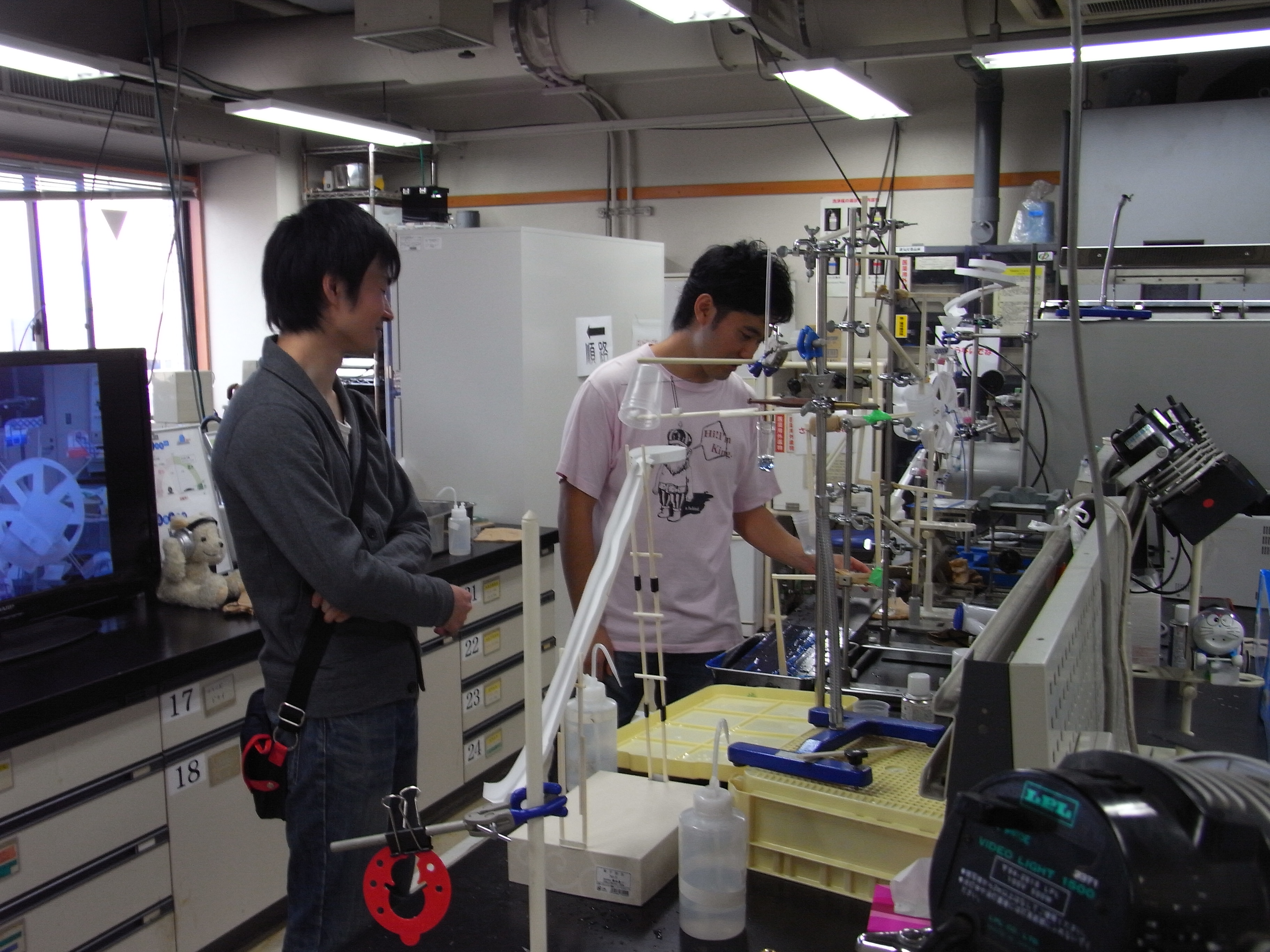In 2025, our research group has enrollments of 3 faculty members, 14 graduate students (one of them is JSPS Research Fellow), and 2 undergraduate students.
The basic directions for research and education in our group are the followings:
(i) Having flexible thinking and rigid originality for arbitrary research topics.
(ii) Possessing sociality and internationalism as a researcher or a technical expert.
Particularly for English-skill training, which is essential for gaining internationalism,
practical educations have been carried out by performing group seminars in English and admitting international researchers.
On one hand, our group members not only have broad research interests but also have various hubbies such as sports, musics, travelling, and gaming.
A lot of colorful events such as a research-group trip in autumn, a year-end party, a new-year party, and
Kodaisai (School festival of Tokyo Institute of Techonlogy), leading to being friendly with our group members.
Our research group was established as the fourth course
in the Department of Inorganic Materials Engineering and was originally called the "Department of Geology"
(Associate Professor Teiroku Sueno).
The name was later changed to "Department of Geology and Mineralogy" under Professor Hisao Yamada,
and then to "Department of Mineralogical Materials" under Professor Zyouyo Kosaka.
The name was changed to "Raw Materials for Ceramics" when Professor Nozomu Otsuka was appointed.
As a result of the reorganization in accordance with the emphasis on the graduate school of the university,
this department was renamed "Inorganic Environmental Materials" together with Sakai Laboratory,
and the name of the laboratory was changed to "Global Environmental Materials Research".
Now, due to further reorganization, the laboratory belongs to the Department of Materials Science,
School of Materials Science and Engineering.
As can be seen from the change in the name of the laboratory,
the original research focus was on geology and geological minerals,
but the content has now changed, and the current research theme is material design and evaluation of ceramics in relation to resources, environment, and energy.








